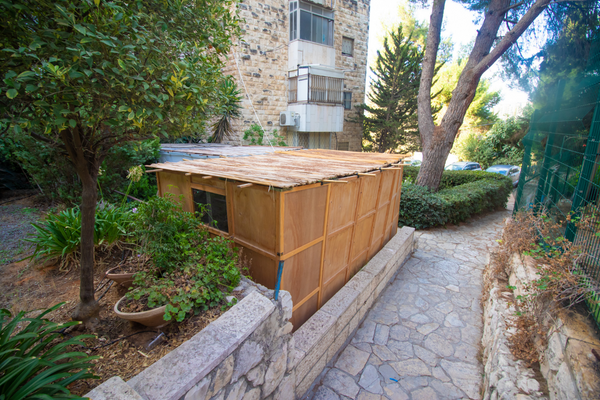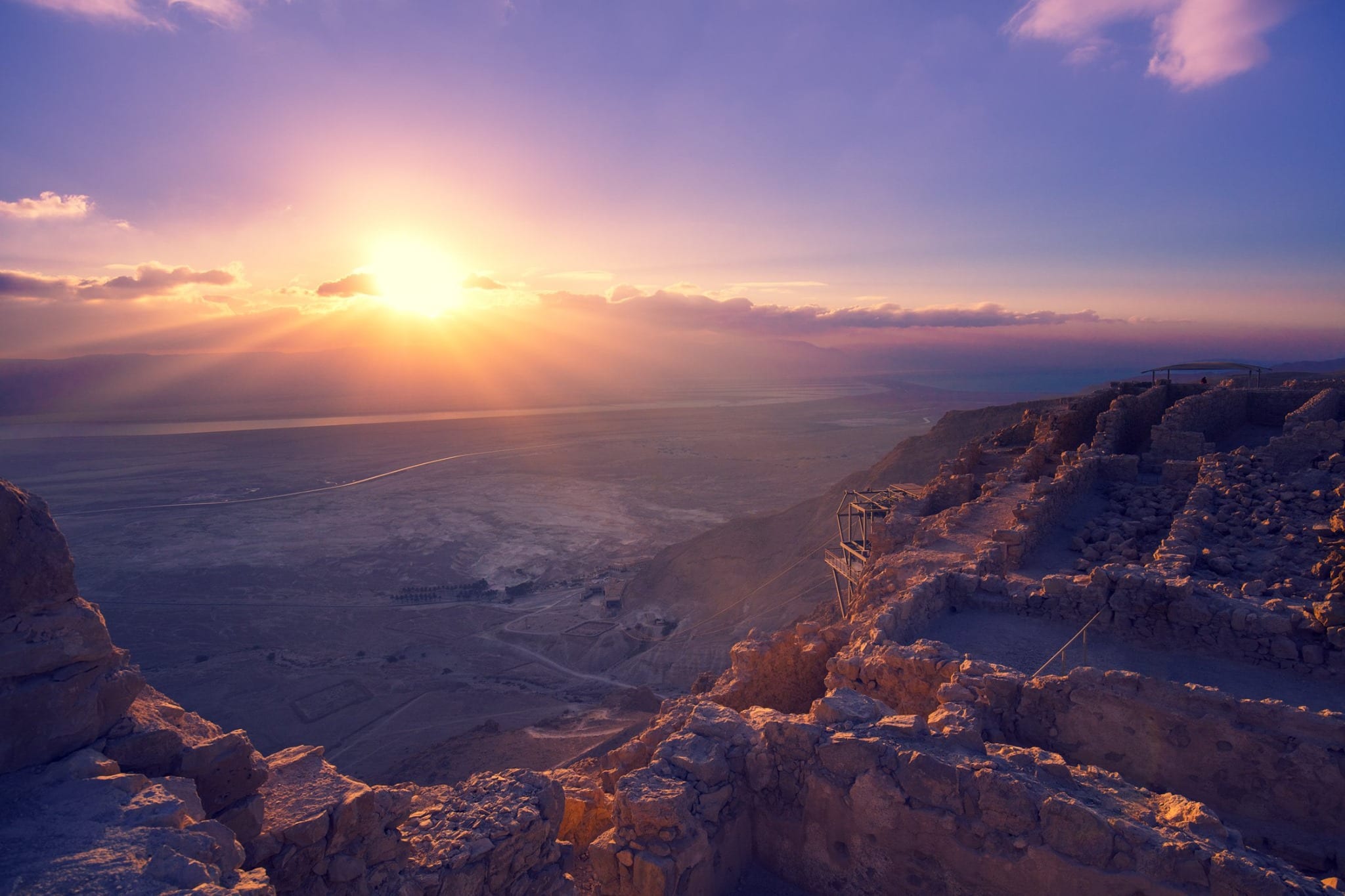
TORAH
NEVI'IM
KETUVIM
Chapter 18
Translation and Transliteration of
Listen to this chapter in Hebrew:
- Commentary
- Buy E-book
- Buy the Israel Bible
1Then Bildad the Shuhite said in reply:
אוַיַּעַן בִּלְדַּד הַשֻּׁחִי וַיֹּאמַר׃
2How long? Put an end to talk! Consider, and then we shall speak.
בעַד־אָנָה תְּשִׂימוּן קִנְצֵי לְמִלִּין תָּבִינוּ וְאַחַר נְדַבֵּר׃
3Why are we thought of as brutes, Regarded by you as stupid?
גמַדּוּעַ נֶחְשַׁבְנוּ כַבְּהֵמָה נִטְמִינוּ בְּעֵינֵיכֶם׃
4You who tear yourself to pieces in anger— Will earth's order be disrupted for your sake? Will rocks be dislodged from their place?
דטֹרֵף נַפְשׁוֹ בְּאַפּוֹ הַלְמַעַנְךָ תֵּעָזַב אָרֶץ וְיֶעְתַּק־צוּר מִמְּקֹמוֹ׃
5Indeed, the light of the wicked fails; The flame of his fire does not shine.
הגַּם אוֹר רְשָׁעִים יִדְעָךְ וְלֹא־יִגַּהּ שְׁבִיב אִשּׁוֹ׃
6The light in his tent darkens; His lamp fails him.
ואוֹר חָשַׁךְ בְּאָהֳלוֹ וְנֵרוֹ עָלָיו יִדְעָךְ׃
7His iniquitous strides are hobbled; His schemes overthrow him.
זיֵצְרוּ צַעֲדֵי אוֹנוֹ וְתַשְׁלִיכֵהוּ עֲצָתוֹ׃
8He is led by his feet into the net; He walks onto the toils.
חכִּי־שֻׁלַּח בְּרֶשֶׁת בְּרַגְלָיו וְעַל־שְׂבָכָה יִתְהַלָּךְ׃
9The trap seizes his heel; The noose tightens on him.
טיֹאחֵז בְּעָקֵב פָּח יַחֲזֵק עָלָיו צַמִּים׃
10The rope for him lies hidden on the ground; His snare, on the path.
יטָמוּן בָּאָרֶץ חַבְלוֹ וּמַלְכֻּדְתּוֹ עֲלֵי נָתִיב׃
11Terrors assault him on all sides And send his feet flying.
יאסָבִיב בִּעֲתֻהוּ בַלָּהוֹת וֶהֱפִיצֻהוּ לְרַגְלָיו׃
12His progeny hunger; Disaster awaits his wife.
יביְהִי־רָעֵב אֹנוֹ וְאֵיד נָכוֹן לְצַלְעוֹ׃
13The tendons under his skin are consumed; Death's first-born consumes his tendons.
יגיֹאכַל בַּדֵּי עוֹרוֹ יֹאכַל בַּדָּיו בְּכוֹר מָוֶת׃
14He is torn from the safety of his tent; Terror marches him to the king.
ידיִנָּתֵק מֵאָהֳלוֹ מִבְטַחוֹ וְתַצְעִדֵהוּ לְמֶלֶךְ בַּלָּהוֹת׃
15It lodges in his desolate tent; Sulfur is strewn upon his home.
טותִּשְׁכּוֹן בְּאָהֳלוֹ מִבְּלִי־לוֹ יְזֹרֶה עַל־נָוֵהוּ גָפְרִית׃
16His roots below dry up, And above, his branches wither.
טזמִתַּחַת שָׁרָשָׁיו יִבָשׁוּ וּמִמַּעַל יִמַּל קְצִירוֹ׃
17All mention of him vanishes from the earth; He has no name abroad.
יזזִכְרוֹ־אָבַד מִנִּי־אָרֶץ וְלֹא־שֵׁם לוֹ עַל־פְּנֵי־חוּץ׃
18He is thrust from light to darkness, Driven from the world.
יחיֶהְדְּפֻהוּ מֵאוֹר אֶל־חֹשֶׁךְ וּמִתֵּבֵל יְנִדֻּהוּ׃
19He has no seed or breed among his people, No survivor where he once lived.
יטלֹא נִין לוֹ וְלֹא־נֶכֶד בְּעַמּוֹ וְאֵין שָׂרִיד בִּמְגוּרָיו׃
20Generations to come will be appalled at his fate, As the previous ones are seized with horror.
al YO-mo na-SHA-mu a-kha-ro-NEEM v'-kad-mo-NEEM A-kha-zu SA-ar
כעַל־יוֹמוֹ נָשַׁמּוּ אַחֲרֹנִים וְקַדְמֹנִים אָחֲזוּ שָׂעַר׃
18:20 Generations to come will be appalled at his fate
In this chapter, Bildad describes the pain and misery that he believes Iyov must endure because he has sinned. He assumes that since Iyov is suffering, he must be evil, and will therefore meet the fate of an evildoer, especially since he refuses to acknowledge his sins and repent. Bildad declares that the devastation will be so overwhelming that “Generations to come will be appalled at his fate.” The idea of future generations being astonished implies complete ruin and devastation. Similarly, in response to the sins of the People of Israel, the Torah writes: “The children who succeed you, and foreigners who come from distant lands” will all be surprised by the complete ruin of the Land of Israel after its destruction (Deuteronomy 29:21). This, too, was caused by a lack of diligence in performing God’s commands, and its reversal requires complete adherence to the word of Hashem.
21“These were the haunts of the wicked; Here was the place of him who knew not Hashem.”
כאאַךְ־אֵלֶּה מִשְׁכְּנוֹת עַוָּל וְזֶה מְקוֹם לֹא־יָדַע־אֵל׃







